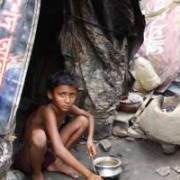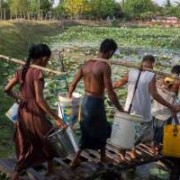Archive | August, 2014
Social development and protection
 Governance and public sector management
Governance and public sector management
 Finance sector development
Finance sector development
 Finance sector development
Finance sector development
 Finance sector development
Finance sector development

Asia and Pacific region post-2015 priorities, MDG8, and Global Partnerships

Any contemporary story on development in the Asia and Pacific region begins with reflection on the massive gains achieved in the fight against poverty. The incidence of people living on less than $1.25 a day fell from 54.5% in 1990 to 20.7% in 2010, with the number of extreme poor declining from 1.48 billion to 733 million. This precipitous decline in poverty incidence has been accompanied by tremendous gains in access to health and education.
Southeast Asia’s energy subsidies are a tax on development

Policy reforms to resolve inefficiencies are a major yet underappreciated source of economic growth. One obvious example is the presence of large energy subsidies in the developing world, which are common among oil-rich countries such as Nigeria and Venezuela. Yet energy subsidies remain both large and seemingly firmly entrenched even in some Southeast Asian countries, where net energy exports are rapidly diminishing.
To invest, or not to invest? That is the problem in Myanmar

Myanmar opened a new chapter in its history in November 2010 when it adopted its open-economy policy. Since then, an impressive array of reforms has been implemented. Excitement about this transition has been widely shared among political, economic, and investment communities around the world. However, Myanmar’s sustainable and inclusive growth depends on it maintaining this momentum during its transition—particularly inflows of foreign direct investment.
Increased lending to SMEs aids financial stability

A key lesson of the 2008 global financial crisis (GFC) was the importance of containing systemic financial risk and maintaining financial stability. At the same time, developing economies are seeking to promote financial inclusion, such as greater access to financial services for low-income households and small firms, as part of their overall strategies for economic and financial development. This raises the question of whether financial stability and financial inclusion are, broadly speaking, substitutes or complements. In other words, does the move toward greater financial inclusion tend to increase or decrease financial stability?
The NDB and AIIB initiatives sound a wake-up call for global finance

July 2014 marked the seventieth anniversary of the Bretton Woods conference, which laid the foundation for the post-WWII international financial system. The conference established the IMF to stabilize the world economy and the World Bank to finance post-war reconstruction. Both have evolved into pillars of present-day global finance.


Search
Subscribe / Connect to Asia Pathways
Subjects
- Agriculture and natural resources
- Blog
- Capacity development
- Climate change
- Economics
- Education
- Energy
- Environment
- Finance sector development
- Gender
- Governance and public sector management
- Health
- Industry and trade
- Information and Communications Technology
- Infrastructure
- Miscellaneous
- Population
- Poverty
- Private sector development
- Regional cooperation and integration
- Sanitation
- Social development and protection
- Transport
- Uncategorized
- Urban development
- Video Blog
- Water
Recent Posts
- Artificial intelligence: A new driver for inclusive growth and development?
- Increasing trust in cross-border e-commerce and artificial intelligence
- Enhancing access to maternal and newborn healthcare in developing Asia
- Can electric vehicles lead the way to a sustainable future?
- Mitigating climate-related sovereign risk to accelerate action on the climate emergency




Recent Comments